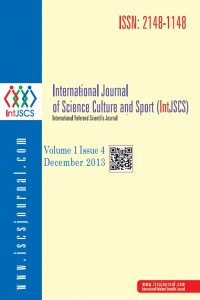For the benefit of the Greek “Great Idea”: the excavations during the Asia Minor campaign (1919-22)1
Abstract
References
- Ampelas D (1937). Η Κάζνδνξ εωλ Νεωεέπωλ Μοπίωλ, 401π.Χ.-1922 κ.Χ. (The Return March of the modern Ten Thousand), Historical Publications, Athens.
- Andreadis A (1909). Μηθπά Αδία θαη Ειιεληδκόξ (Asia Minor and the Hellenism), Panhellenic Press Publications, Athens.
- Bettina A (1992). The past as propaganda: How Hitler's archaeologists distorted European prehistory to justify racist and territorial goals, Archaeology, July/Aug, 1992:30-37.
- Criellard JP (2009). The Ionians in the Archaic period, in Derks T and Roymans N (eds), Ethnic Constructs in Antiquity, Amsterdam University Press, Amsterdam.
- Emlyn-Jones C (1981). The Ionians and Hellenism, Routledge Kegan & Paul Publications, London.
- Georgiou V (1945). Η εμαζιίωδε ενο ιανύ θαη ν πινύενξ εεξ ζώπαξ (The pauperisation of the people and the richness of the country), Mari & Korontzi, Athens.
- Karolidis P (1909). Πεπί εεξ Εζληθήξ Καεαγωγήξ εωλ Οπζνδόμωλ Χπηδεηαλώλ Σοπίαξ θαη Παιαηδείλεξ (On the National Origin of Orthodox Christians of Syria and Palestine), Sakellariou, Athens.
- Papavasileioy, General Commander (1921). Correspondence of the Archaeological Dept. of the Greek High Commission in Smyrna. National Monuments Archive.
- Philippou I, Major (1921). Report on the Italian Propaganda. Archives of the Hellenic Ministry of Foreign Affairs. Sartiaux P (1918). L’Archéologie française en Asie Mineure et l’Expansion Allemande, Librairie Hachette, Paris.
- Scalieris G (1922). Λανί θαη ζοιαί εεξ Μηθπάξ Αδίαξ (The People and Races of Asia Minor), Press Publications, Athens.
- Sifakis H (1921). Παλειιήληνλ Λεύθωκα Εζληθήξ Εθαενλεαεεεπίδνξ, 1821-1921, Η “Χποδή Βίβινξ” εεξ Ειιάδνξ, Α΄- Οηθνλνκνινγηθά (The Golden Bible of Greece, 1821-1921, Α΄ Economics), Athens.
- Sotiriou G (1920). Τα Χπηδεηαληθά Μλεκεία εεξ Μ. Αδίαξ (Τhe Christian Monuments of Asia Minor), Sideris Publications, Athens.
Abstract
Colonialism dominated history and archaeology perhaps unlike any other event, and archaeological interpretation was an essential support to territorial claims. Thus, upon the landing of the Greek troops in Smyrna on May 1919, that inaugurated a 3-years military campaign, the Greek Government sent archaeologists to excavate some of the famous archaeological sites of the western coast, while the Greek Army also participated, by gathering artifacts on its way to Ankara. The surveys attempted to “prove” the “since ever pure” and “solid” Greekness of Asia Minor, by diminishing, on the other hand, the role of other ancient people into the creation of the Aegean and Anatolian civilization. Through a brief description, this article focuses on the relation between the excavations and the necessity of the Greek bourgeoisie of becoming more effective ideologically.
References
- Ampelas D (1937). Η Κάζνδνξ εωλ Νεωεέπωλ Μοπίωλ, 401π.Χ.-1922 κ.Χ. (The Return March of the modern Ten Thousand), Historical Publications, Athens.
- Andreadis A (1909). Μηθπά Αδία θαη Ειιεληδκόξ (Asia Minor and the Hellenism), Panhellenic Press Publications, Athens.
- Bettina A (1992). The past as propaganda: How Hitler's archaeologists distorted European prehistory to justify racist and territorial goals, Archaeology, July/Aug, 1992:30-37.
- Criellard JP (2009). The Ionians in the Archaic period, in Derks T and Roymans N (eds), Ethnic Constructs in Antiquity, Amsterdam University Press, Amsterdam.
- Emlyn-Jones C (1981). The Ionians and Hellenism, Routledge Kegan & Paul Publications, London.
- Georgiou V (1945). Η εμαζιίωδε ενο ιανύ θαη ν πινύενξ εεξ ζώπαξ (The pauperisation of the people and the richness of the country), Mari & Korontzi, Athens.
- Karolidis P (1909). Πεπί εεξ Εζληθήξ Καεαγωγήξ εωλ Οπζνδόμωλ Χπηδεηαλώλ Σοπίαξ θαη Παιαηδείλεξ (On the National Origin of Orthodox Christians of Syria and Palestine), Sakellariou, Athens.
- Papavasileioy, General Commander (1921). Correspondence of the Archaeological Dept. of the Greek High Commission in Smyrna. National Monuments Archive.
- Philippou I, Major (1921). Report on the Italian Propaganda. Archives of the Hellenic Ministry of Foreign Affairs. Sartiaux P (1918). L’Archéologie française en Asie Mineure et l’Expansion Allemande, Librairie Hachette, Paris.
- Scalieris G (1922). Λανί θαη ζοιαί εεξ Μηθπάξ Αδίαξ (The People and Races of Asia Minor), Press Publications, Athens.
- Sifakis H (1921). Παλειιήληνλ Λεύθωκα Εζληθήξ Εθαενλεαεεεπίδνξ, 1821-1921, Η “Χποδή Βίβινξ” εεξ Ειιάδνξ, Α΄- Οηθνλνκνινγηθά (The Golden Bible of Greece, 1821-1921, Α΄ Economics), Athens.
- Sotiriou G (1920). Τα Χπηδεηαληθά Μλεκεία εεξ Μ. Αδίαξ (Τhe Christian Monuments of Asia Minor), Sideris Publications, Athens.
Details
| Primary Language | English |
|---|---|
| Subjects | Sports Medicine |
| Journal Section | Articles |
| Authors | |
| Publication Date | December 12, 2013 |
| Published in Issue | Year 2013 Volume 1 - Issue 4 |


